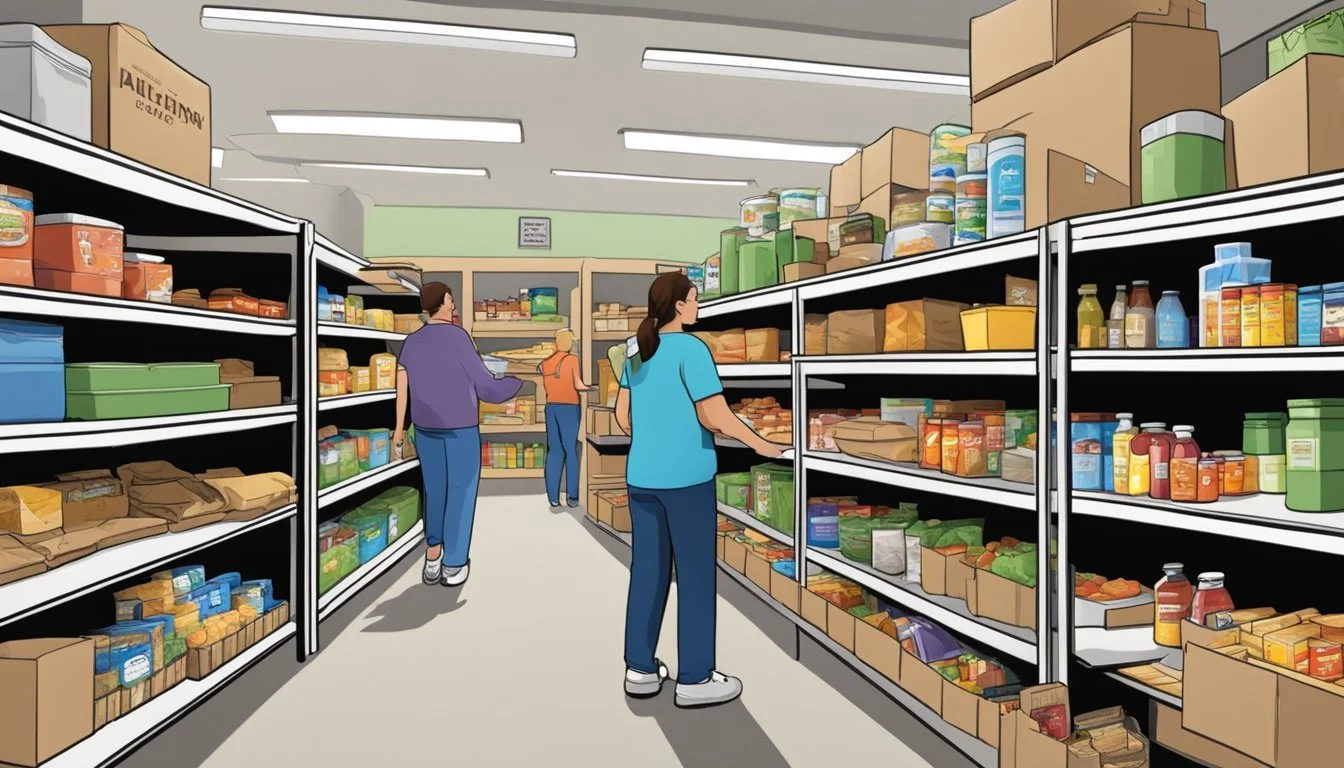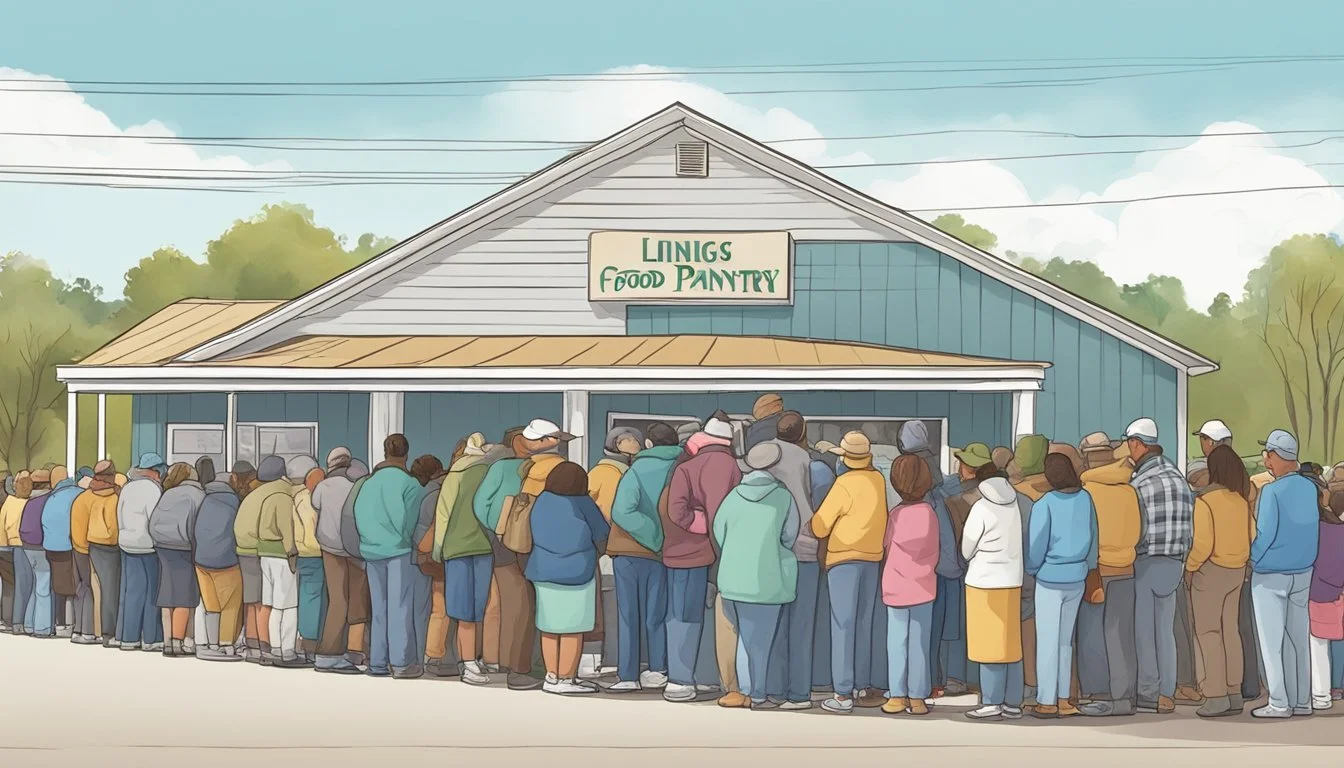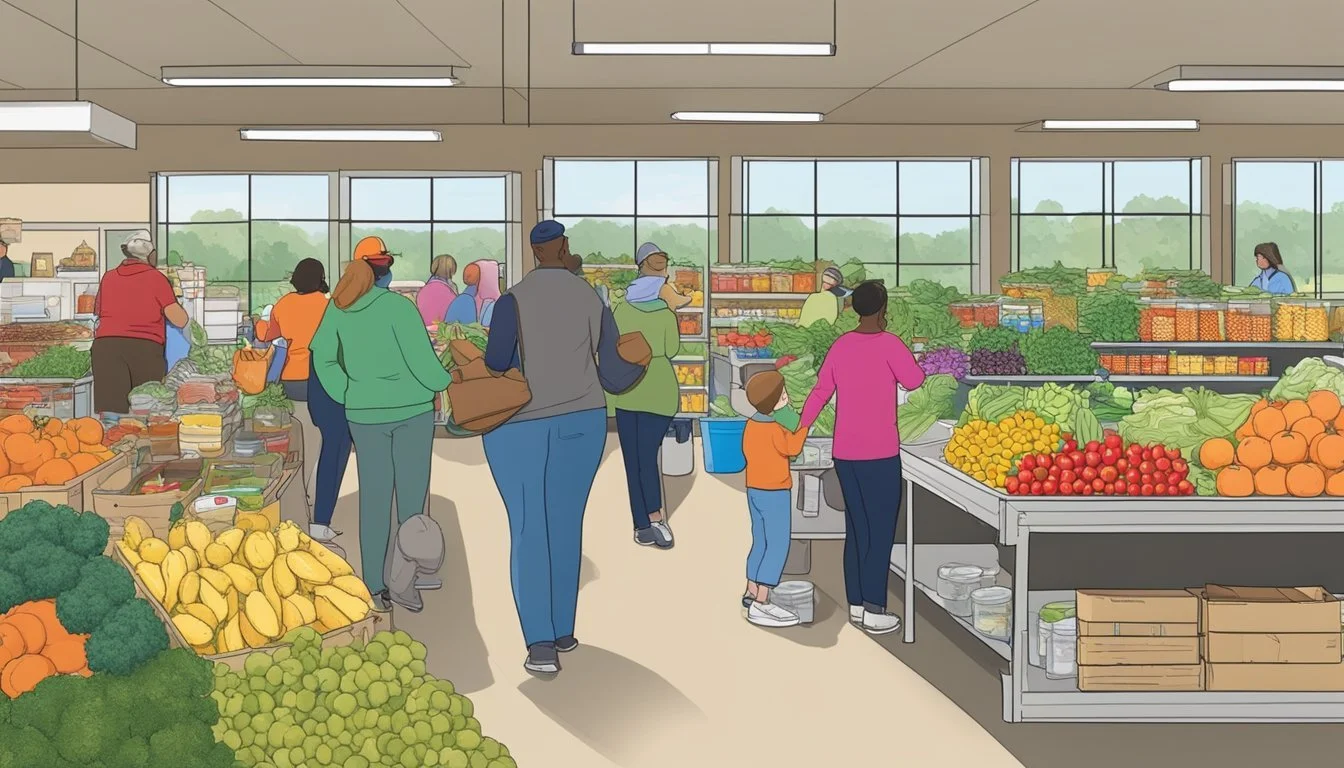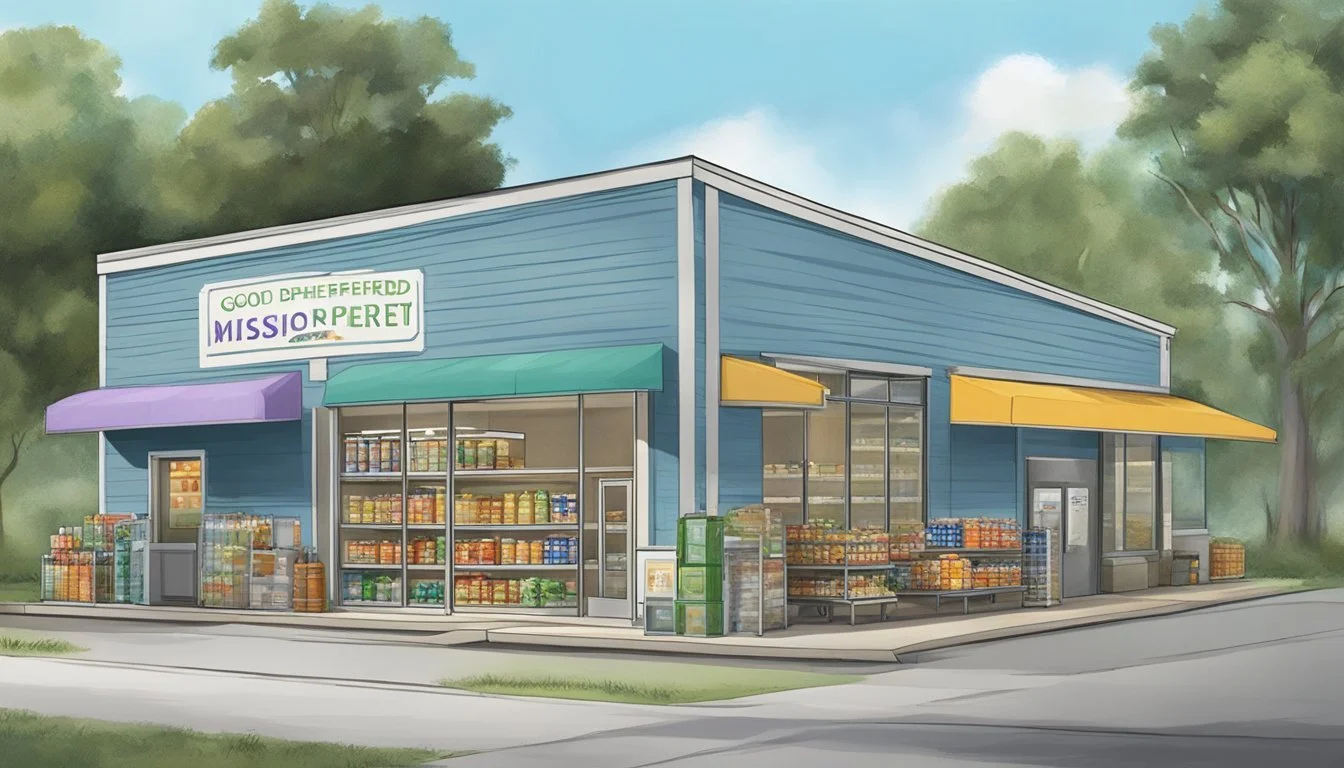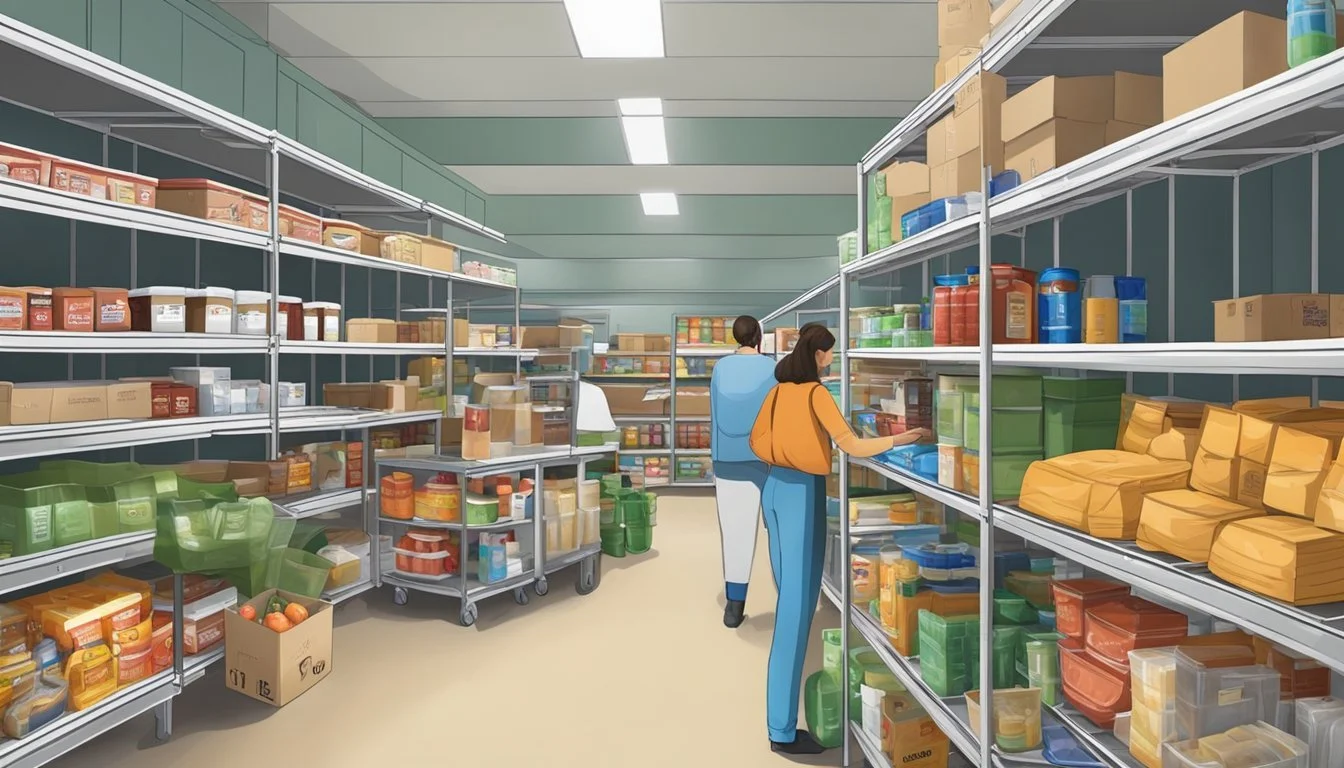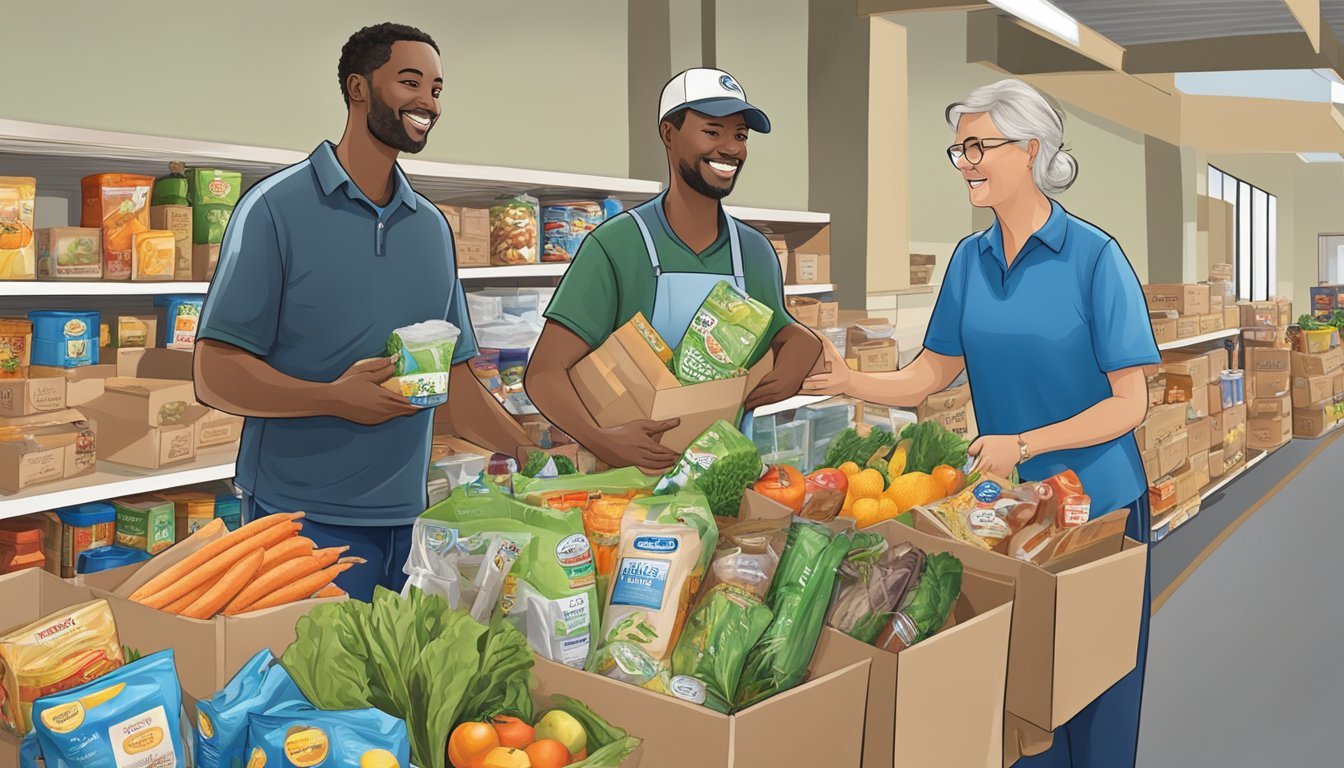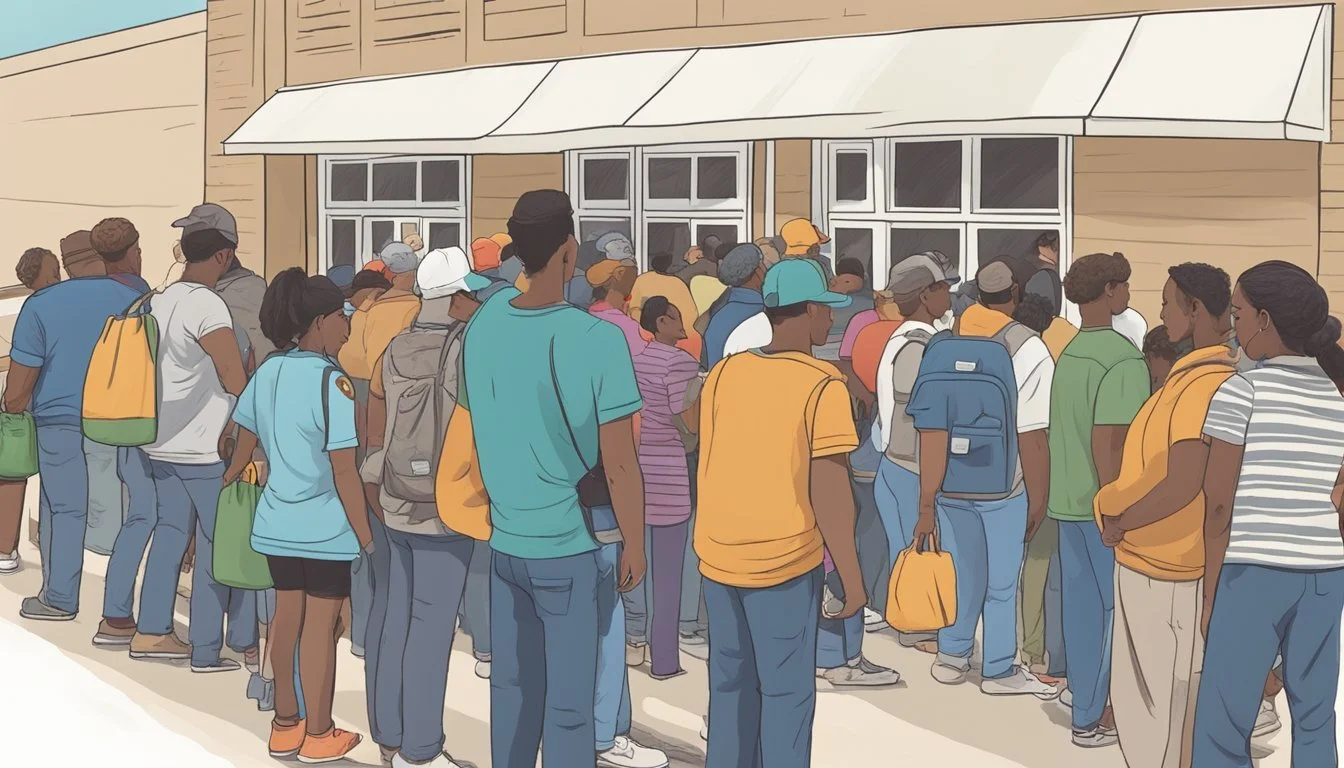Free Groceries and Food Pantries in Walker County, Texas
Your Complete Guide
This Article is Part of Our Guide on Free Groceries in Texas
In Walker County, Texas, access to nutritious food is a vitally important issue for many residents. Food insecurity can touch a variety of individuals and families, driving the demand for community support in the form of food pantries and assistance programs. Fortunately, Walker County is served by a network of resources offering free groceries and meals to those in need. These entities work seamlessly to ensure that no one in the community has to face hunger.
Local food pantries and assistance programs in Huntsville, the county seat, provide a crucial lifeline. They offer services including food and clothing pantry access, hot meals, and even emergency support such as gasoline vouchers and bus tickets for women and children, making a broad effort to address not just hunger but related basic needs as well. Additionally, these programs support Walker County residents who are transient or displaced with short-term shelter options.
Behind these services is a cooperative effort that sees local organizations partnering with regional and national networks to maximize food availability. Feeding America, for example, collaborates with food banks and local food pantries to distribute free food throughout the community. This collective action has established a safety net that Walker County residents can rely on for food assistance.
Understanding Food Pantries and Their Role
In Walker County, Texas, addressing food insecurity is a significant challenge that food pantries aim to meet by providing free groceries to those in need. These entities stand distinct from other food assistance programs such as soup kitchens, each serving a unique purpose in the fight against hunger.
Definition and Purpose of Food Pantries
Food pantries are vital resources that offer free pre-packaged food items to individuals and families facing food insecurity. Their primary purpose is to supplement the food needs of those who may not have enough resources to ensure a consistent and nutritious diet. By doing so, food pantries help to alleviate the burden of food insecurity in communities such as Walker County.
The Difference between Food Pantries and Soup Kitchens
While both food pantries and soup kitchens are crucial in providing food assistance, they serve different functions:
Food Pantries: Provide groceries that individuals take home to prepare.
Soup Kitchens: Offer prepared meals that are typically consumed on-site.
The distinction is important because food pantries, unlike soup kitchens, allow for greater flexibility for individuals and families to plan and prepare meals according to their schedules and dietary needs.
Role in Food Assistance and Hunger Relief
Food pantries play an indispensable role in hunger relief efforts by ensuring access to food for those who may otherwise go without. In Walker County, these pantries contribute to the broader food assistance network by:
Collaborating with charitable organizations
Distributing nutritious food options
Reducing the stigma associated with seeking free food through discreet and respectful services
Their presence reinforces community resilience and collaborative support systems designed to assist people from diverse socio-economic backgrounds in sustaining their well-being.
Locating Food Pantries in Walker County
Residents in Walker County, Texas, have access to a variety of food assistance services. The availability of food pantries ensures that individuals and families can find support within their community.
Using Food Bank Directories
A comprehensive food bank directory is essential for efficiently locating services in Walker County. The Feeding America network provides an online directory to help residents identify local food assistance options. Directories often list organizations by location and services offered, enabling quick and relevant searches.
Services Offered by Food Pantries
Food pantries in Walker County typically provide non-perishable food items, fresh produce, and baked goods. Specialized services may include hot meals twice a day, clothing, and in certain cases emergency support such as gasoline vouchers and bus ticket vouchers for women and children. For example, a local food pantry in Walker County offers shelter for transients or displaced residents, limited to three nights with designated areas for men, women, and families.
Finding Pantries by Zip Code
Utilizing zip codes can streamline the search for nearby food pantries. Residents can employ this method to discover the most conveniently located services. A Walker County resident in need could, for example, find a pantry by entering the zip code 35502 into a food bank's search tool, which would yield specific contact information such as phone numbers or addresses. For immediate assistance, one could contact a pantry directly at (936) 291-8156 or visit their website for more details.
How to Access Free Groceries and Services
Residents in Walker County, Texas, have several options to access free groceries and services. Understanding the eligibility criteria, navigating referrals, and applying for food programs are vital steps in receiving assistance.
Eligibility Requirements for Assistance
In Walker County, individuals seeking free groceries or food assistance are generally required to meet certain eligibility criteria, which can vary by program. For example, food pantries may have income guidelines that applicants must fall below. These guidelines are typically based on federal poverty levels. Churches and other charitable organizations may have more flexible requirements, often assisting individuals based solely on need.
Referrals and How to Get Them
Referrals to food assistance programs often come through social service agencies, schools, healthcare providers, or religious organizations. For example, a social worker may refer an individual or family to a local food bank or pantry. Residents can also contact the United Way's 2-1-1 Texas service for information on local food assistance referrals.
To get a referral, one can:
Contact local social service agencies.
Call 2-1-1 Texas for assistance.
Reach out to religious organizations in the area.
Applying for SNAP and Other Food Programs
The Supplemental Nutrition Assistance Program (SNAP), formerly known as food stamps, offers financial support to buy groceries. To apply for SNAP benefits in Walker County, individuals must submit an application to the Texas Health and Human Services Commission, either online, in person, or by mail.
SNAP Eligibility is based on:
Household income
Employment status
Number of household members
In addition to SNAP, residents may qualify for other food programs such as WIC (Women, Infants, and Children) for pregnant women and children under five or the National School Lunch Program for children in school. The application processes for these programs are similar to SNAP, requiring documentation of income and need.
Additional Support Services in Walker County
Walker County offers a variety of support services tailored to meet the needs of residents in challenging situations. These services include the distribution of essential supplies, specialized counseling, and housing assistance, ensuring a multifaceted approach to community aid.
Clothing and Basic Supplies Distribution
Community programs in Walker County provide clothing and basic supplies to those in need. These services often include the provision of diapers, essential for families with young children, and clothing appropriate for both day-to-day wear and job interviews. Distribution centers may also offer other necessities to support residents in maintaining hygiene and comfort.
Counseling and Supportive Services
Residents of Walker County can access counseling and supportive services to help them navigate personal and financial difficulties. These services are designed to offer guidance and emotional support, aiding individuals in overcoming barriers to their well-being and stability.
Shelter and Housing Assistance
For individuals and families facing displacement, Walker County extends shelter and housing assistance. Emergency shelters provide temporary residence, typically for a limited duration such as 3 nights, and may include dedicated spaces such as men’s and women’s dorms and family rooms. In certain cases, services may extend to assist with housing expenses to prevent homelessness, offering a more sustainable solution for those in precarious housing situations.
Support services in Walker County also address urgent travel needs by providing gasoline vouchers in emergencies, affording residents the means to reach essential destinations.
Specialized Programs for Community Needs
Walker County offers a variety of specialized food assistance programs tailored to meet the unique needs of its residents. These programs encompass services for families, immigrants, and the unemployed; provide support for homeless individuals and transients; and feature holiday meals and special event programs to ensure that no member of the community goes without necessary nutrition.
Services for Families, Immigrants, and Unemployed
Walker County food pantries and assistance programs are committed to supporting families in need, immigrants, and individuals facing unemployment. These services often:
Offer bilingual assistance to help non-English speaking immigrants access food services.
Provide job resource information alongside food assistance to aid the unemployed in their search for employment.
Programs for Homeless Individuals and Transients
Food banks in the area have developed robust programs aimed at assisting those without a permanent residence, such as homeless individuals and transients. They focus on:
Mobile pantries that travel to reach people where they are.
No-ID-required services to ensure that lack of documentation does not bar access to food resources.
Holiday Meals and Special Event Programs
During holidays and special events, Walker County ensures that those in need have access to celebratory and seasonal meals. Typically, this involves:
Coordination with local organizations to set up holiday-specific distributions.
Additional funding and donations to support increased demand during festive periods.
Good Shepherd Mission Food Pantry Services
The Good Shepherd Mission Food Pantry in Walker County, Texas, offers varied services to combat hunger and provide nutritional support to the community.
Client Choice Food Pantry
The Client Choice Food Pantry allows individuals to select their own food based on their personal preference and nutritional needs. This model respects the dignity of clients and aims to reduce food waste by allowing choices tailored to household sizes and dietary requirements.
Nutrition Counseling and Education
Good Shepherd Mission integrates Nutrition Counseling and Education into its services to enhance clients' understanding of healthy eating habits. Qualified staff provides insights on how to maintain balanced diets, making a significant impact on the community's health and well-being.
Comprehensive Guide to Available Services
They provide a Comprehensive Guide to Available Services for residents of Walker County. This guide details the range of services offered, including the availability of food vouchers and guidance on how to access additional support for lodging and other needs. The staff at Good Shepherd Mission ensures that community members receive the necessary information to utilize all available resources effectively.
Help Beyond Food: Rent, Utilities, and Medical Aid
In Walker County, Texas, individuals and families facing financial hardship can access not only food assistance but also support for housing and healthcare costs. Outreach programs and charitable organizations offer these essential services, aiming to provide stability and alleviate the stress associated with financial burdens.
Assistance with Rent and Utilities
Organizations in Walker County understand the importance of a stable home environment. Various assistance programs are available to help with rent and utility payments. The Salvation Army USA, for example, has a program specifically designed to offer emergency rent and utility aid to qualifying individuals. They may require applicants to provide proof of income or financial hardship to qualify for assistance.
Rent Assistance: Help with monthly rent payments to prevent evictions and homelessness.
Utility Assistance: Support in paying bills for essential services such as electricity, water, and gas.
Medical Assistance and Prescription Aid
Healthcare is critical, and in Walker County, there are programs that assist residents with medical expenses and prescriptions. These programs ensure that financial difficulties do not prevent individuals from receiving necessary medical care or accessing prescribed medications.
Prescription Assistance: Programs exist to help cover the cost of essential medications, making these more accessible for those in need.
Entities such as local non-profits, charity organizations, and federal programs often offer such aid to qualifying residents. It's recommended to contact these programs directly for the most detailed and current eligibility requirements and application processes.
Community Contributions and Volunteerism
Walker County, Texas, sustains a network of food assistance options due to the substantial contributions from local churches, non-profit organizations, and the spirit of volunteerism. These entities ensure that the vulnerable populations have access to free groceries and nutrition.
How Local Churches and Non-Profits Help
Local churches in Walker County have been instrumental in establishing and maintaining food pantries as part of their outreach programs. They ensure the consistent supply of food items through donations and community drives. For instance, a non-profit like the Johnny Williamson Good Shepherd Foundation has extended its services to include The Little Closet, providing food and support to individuals in need.
Organizational Contributions:
Local churches: Run food pantries and donation drives.
Non-profits: Offer services like community food closets.
Volunteering and Funding in Food Assistance
Volunteers play a pivotal role in the operations of Walker County's food assistance services. They manage tasks ranging from sorting donations to distributing food packages. Funding for these initiatives often comes from local fundraisers, grants, and private donations, enabling pantries to stay stocked.
Volunteer Efforts:
Sort and organize donations.
Distribute food at pantries and during drives.
Sources of Funding:
Fundraisers: Events organized to raise money for food assistance programs.
Grants: Financial support from government or private foundations.
Donations: Monetary and food contributions from the community.
Resources and Contacts for Assistance Seekers
Residents of Walker County, Texas, have access to a range of food assistance programs. Those in need can locate food pantries and other resources that provide support with groceries and meals.
Food Pantry Contact Information
For individuals seeking immediate food assistance, contacting local food pantries is the first step. Contact information may vary by location, but typically it includes a phone number, an email address, or a physical address. An example of a resource for finding contact details is through organizations like Feeding America, which can guide residents to nearby food pantry contact information based on zip code.
Hours of Operation and Availability
Food pantries in Walker County may have varying hours of operation. It is crucial to confirm the availability of the pantry beforehand to ensure services can be accessed without inconvenience. Some pantries might have specific days of the week or hours when they are open to the public, while others may operate as mobile pantries with set distribution times and locations.
Understanding the Broader Assistance Network
Apart from individual food pantries, Walker County residents can seek help from a broader network of food assistance services, including soup kitchens, meal programs, and drive-thru pantries. These services may ask about family size, income, and dietary preferences to tailor the assistance they provide. Organizations such as Feeding America offer connections to over 200 food banks, which can direct individuals to specific local assistance programs.
Legal and Social Framework
Walker County, Texas operates within a structured legal and social framework designed to combat food insecurity. This system facilitates the distribution of USDA commodities and ensures ethical practices in food distribution.
Government Support and USDA Commodities
The United States Department of Agriculture (USDA) provides support to food assistance programs through the distribution of USDA commodities. In Walker County, these federal provisions bolster local food pantries, enabling them to offer a consistent supply of nutritious food to low-income residents. These commodities range from non-perishable packaged items to fresh produce.
USDA Commodities in Walker County:
Non-perishable items (canned vegetables, grains, etc.)
Perishable items (fresh produce, dairy, meats)
Specialized items for those with dietary needs
Food pantries in Walker County typically receive these goods through The Emergency Food Assistance Program (TEFAP), which is supported by USDA initiatives such as the Commodity Supplemental Food Program (CSFP). This government backing is crucial in maintaining a steady food supply to those in need.
The Ethics and Policies of Food Distribution
The distribution of food within Walker County is governed by a set of ethical policies to ensure fair and respectful treatment of those seeking assistance. Food pantries, many of which are affiliated with Feeding America—a nationwide network—adhere to non-discriminatory practices and prioritize dignity and confidentiality for individuals and families accessing their services.
Key Policies in Food Distribution:
Non-Discrimination: Services are provided irrespective of race, religion, or background.
Privacy: Personal information is safeguarded, maintaining client confidentiality.
Accessibility: Efforts are made to ensure pantries are accessible to all in need.
Through assistance programs such as SNAP (Supplemental Nutrition Assistance Program) and school lunch programs, the framework supports children, the elderly, and low-income families. These programs are linked with local food pantries to form a comprehensive network that optimizes food distribution in the community.

